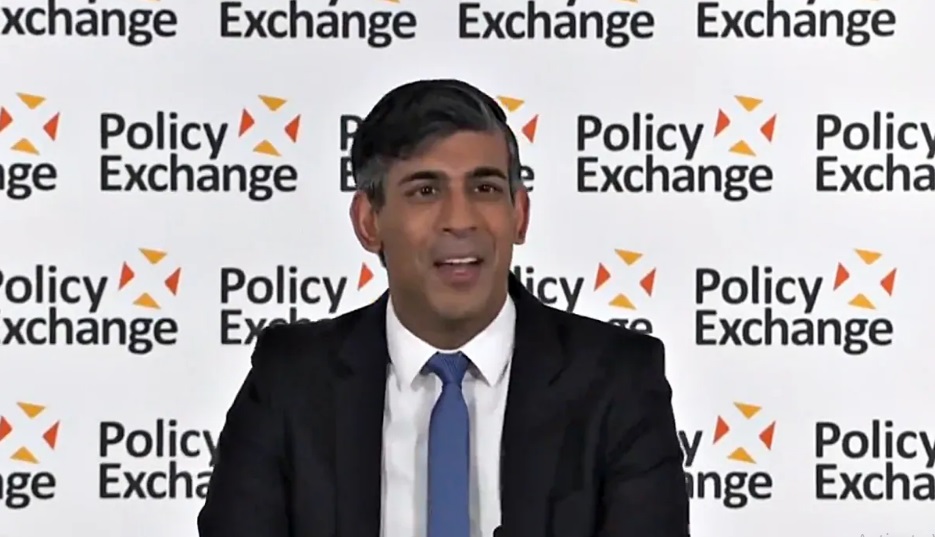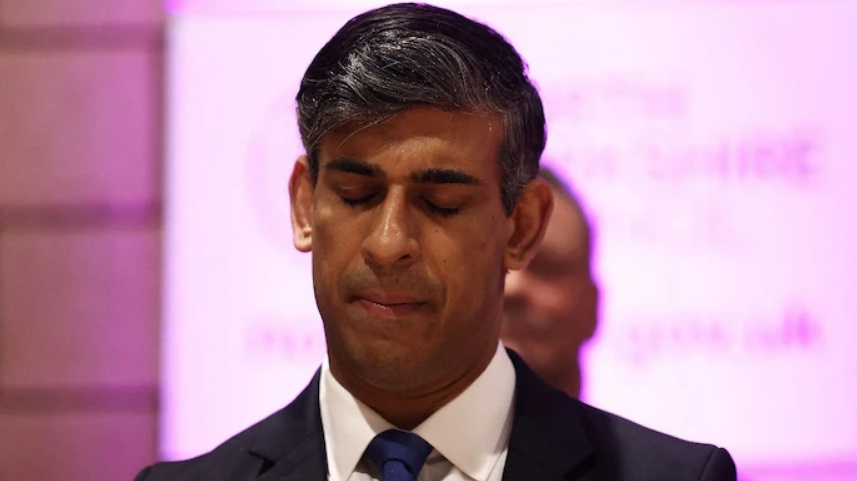
Explainer-What is Britain’s Rwanda migrant deportation plan?
MIGRATION-BRITAIN-RWANDA-PLAN:Explainer-What is Britain’s Rwanda migrant deportation plan?
LONDON -British Prime Minister Rishi Sunak promised on Monday to start sending asylum seekers to Rwanda within 10 to 12 weeks after parliament passed much-delayed legislation to facilitate the deportation of those arriving in Britain without permission.
Last November, the Supreme Court declared the policy unlawful but Sunak says the new law overrides any legal concerns and will thus fulfil his pledge to stop people arriving across the Channel in small boats.
Here are details about the plan and the migration issue:
WHY IS IMMIGRATION SUCH AN ISSUE IN BRITAIN?
Taking back control of Britain’s borders and ending the free movement of people into the country was a major factor that led to the 2016 vote for Britain to leave the European Union. Polls show it remains one of the most important issues for voters.
Official figures put 2022 annual net migration to Britain at a record of 745,000, and Sunak has set out a series of measures to cut legal migration by 300,000.
He has also promised to stop people making the dangerous journey of about 20 miles across the Channel in small boats. More than 29,000 people arrived this way last year, after a record 45,775 migrants arrived in 2022.
So far this year 6,265, people have been detected, up by almost a quarter on the same period in 2023.
WHAT IS BRITAIN’S RWANDA PLAN?
The scheme, which was agreed in April 2022 by then Prime Minister Boris Johnson, sends anyone who arrived in Britain illegally after Jan. 1, 2022 to Rwanda, some 4,000 miles away.
However, the first deportation flight in June 2022 was blocked by European judges. The Supreme Court then upheld a ruling that the scheme was unlawful because migrants were at risk of being sent back to their homelands or to other countries where they would be at risk of mistreatment.
Despite no deportations taking place, Britain has already paid Rwanda more than 200 million pounds , and to resettle some 300 refugees could cost more than 600 million pounds.
Some 50,000 people could potentially be sent there as it stands but it also remains unclear how many people Rwanda can take.
WHY IS THE RWANDA POLICY SO IMPORTANT TO SUNAK?
After becoming prime minister in late 2022, Sunak made his pledge to “stop the boats” one of his top five priorities.
Britain is spending more than 3 billion pounds a year on processing asylum applications, with the cost of housing migrants awaiting a decision in hotels and other accommodation running at about 8 million pounds a day.
Figures show more than 80,000 asylum applications remain to be decided.
WHAT IS SUNAK’S ‘SAFETY OF RWANDA’ LAW?
To address the issues raised by the Supreme Court, Sunak agreed a new treaty with Rwanda that seeks to prevent asylum seekers deported there from being sent anywhere else other than back to Britain.
His proposed bill, which the government stated might not be compatible with the European Convention on Human Rights, affirms that Rwanda is a safe country.
It disapplies some sections of Britain’s Human Rights Act and says ministers alone would decide on whether to comply with any injunction from the European Court of Human Rights .
However, the law has provoked widespread criticism, from members of Sunak’s own Conservative Party to the United Nations human rights chief.
WILL RWANDAN DEPORTATION FLIGHTS TAKE OFF?
Sunak said on Monday that the government had booked commercial charter planes, put an airfield on standby and trained staff to take migrants to Rwanda, and the first flight would leave in the next 10-12 weeks.
But for some in Sunak’s party, the new law does not go far enough in preventing asylum seekers from being able to appeal against their deportation.
The legislation means that while British courts will not be able to consider whether Rwanda is safe, individual cases could still have to be considered in their own right, albeit on very limited grounds.
The ECHR could again issue orders to block deportation flights, although the court has amended its rules so that injunctions will only be issued in “exceptional circumstances”. Its president has said Britain had a legal obligation to comply with its rulings.
“If it ever comes to a choice between our national security — securing our borders — and membership of a foreign court, I’m, of course, always going to prioritise our national security,” Sunak said on Monday.
Unions have said ministers would need parliament to change the civil service code if it wants government staff to ignore ECHR rulings if instructed by ministers. Otherwise they warn they might take legal action themselves.
HOW DOES BRITAIN COMPARE WITH OTHER COUNTRIES?
Many European nations, such as Germany, have tightened their border controls to address immigration concerns, while European lawmakers recently approved a revamped migration system to reduce unwanted immigration.
Denmark has also signed a similar agreement with Rwanda, but has yet to send any migrants there, and Italy has announced plans to build reception centres in Albania.
Israel scrapped a similar deal with Rwanda after five years, with the Israeli Supreme Court declaring it unlawful because Rwanda had not complied with assurances it had given.





